Principal Investigators
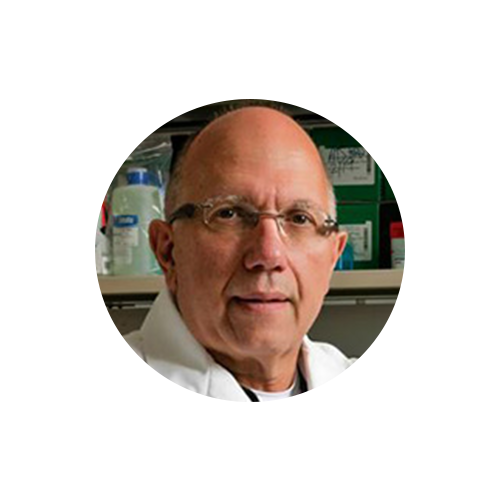
Rafick Pierre Sekaly, PhD
Professor & Vice-Chair of Translational Medicine
Director of Pathology Advanced Translational Research Unit
Emory Vaccine Center
Department of Pathology & Laboratory Medicine
View Faculty Profile | Publications
Rafick Sekaly, obtained a PhD in Biochemistry, from the University of Lausanne and the Ludwig Institute for Cancer Research, Switzerland.
He comes to Emory from Case Western Reserve University, where he was Richard J. Fasenmyer Professor of Immunopathogenesis, co-director of the Center of Systems Immunology, and co-leader of Case Western’s COVID-19 task force.
Sekaly is one of the world’s leading researchers focused on a cure for HIV/AIDS and has led fundamental work on the persistence of the HIV reservoir and progression of HIV infection. For clinical trials, he has partnered with companies using gene therapy to make immune cells resistant to HIV. Sekaly’s lab has also pioneered the use of comprehensive systems approaches to study immune memory and immune responses to vaccines.
From 2009 to 2014, Sekaly was scientific director of the Vaccine and Gene Therapy Institute in Florida and was previously based at the University of Montreal and McGill.
RESEARCH INTERESTS
Dr. Sekaly’s focus on HIV disease immune pathogenesis, immune virology, and immunotherapies has generated pioneering findings that highlight the impact of HIV infection on thymic output, T cell memory, mechanisms of CD4 and CD8 T cell dysfunction, and on innate immunity and mechanisms of HIV persistence. He has also pioneered the use of transcriptomics and bioinformatics to identify predictors/correlates of immune responses that lead to protection from viral infections, including HIV, SIV and flaviviruses, protection from disease progression and successful immune interventions including adjuvants, licensed preventative and therapeutic vaccines.
He is the principal investigator on numerous grants from the National Institutes of Health, the Bill and Melinda Gates Foundation, the American Foundation for AIDS Research, the Fred Hutchinson Cancer Research Center, Gilead Sciences Incorporation, Merck Sharp & Dohme Corporation, and more. His research group has been continuously funded since 1988 by federal and nonfederal grants.
Dr. Sekaly’s efforts have resulted in novel approaches to cancer and HIV vaccines and have led to more than 357 peer-reviewed articles in scientific journals and 25 patents in Adjuvants, PD-1 and vaccine vectors.
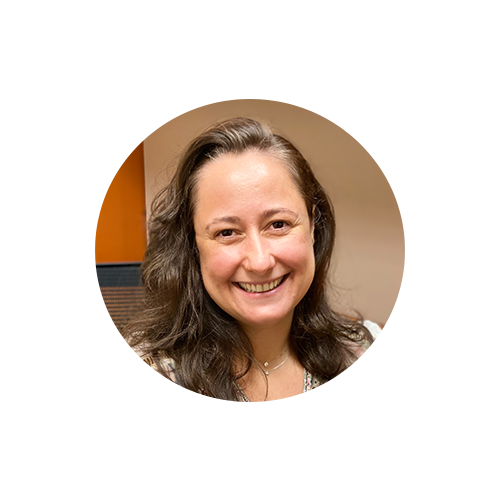
Susan Ribeiro, PhD
Assistant Professor
Pathology Advanced Translational Research Unit
Department of Pathology & Laboratory Medicine
View Faculty Profile | Publications
Dr. Ribeiro’s research focus is on infectious diseases and most recently in cancers. Trained as a system’s biologist, Dr. Ribeiro applies MULTI-OMICs platforms to understand the mechanisms underlying immune responses to diseases and immunotherapies in human cohorts. High-throughput tools are used to validate the major findings in vitro resulting in the development of specific drugs to be tested in non-human primates, being clinical trials the expected outcome.
BIOGRAPHY AND RESEARCH INTERESTS
Dr. Ribeiro was initially involved in HIV vaccine development in pre-clinical models and has expanded her research focus to System’s Biology in the past 6 years. Currently, Dr. Ribeiro is focused on the role of IL10 and other factors (such as microbiome, metabolome, drugs of abuse, etc) in the modulation of the immune system in HIV, cancers and COVID19.
EDUCATION
Dr Ribeiro has major in Biology and has obtained her PhD from the School of Medicine at the University of Sao Paulo in Brazil, where she also has completed a postdoctoral fellowship focused on HIV vaccine development and immunogenicity evaluation in pre-clinical models (transgenic mice and rhesus macaques). She also has joined UCSF for part of her Post-Doc, extending her studies to HIV pathogenesis.
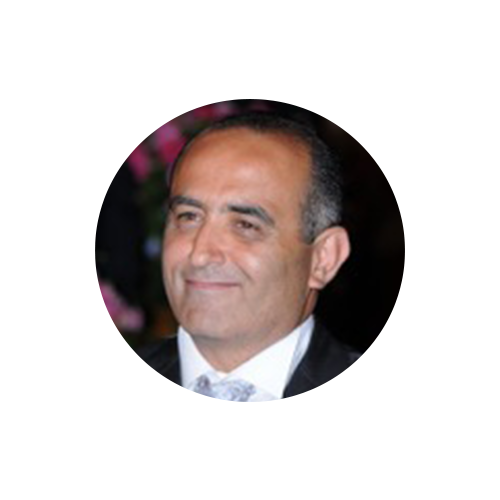
Souheil Younes, PhD
Assistant Professor
Pathology Advanced Translational Research Unit
Department of Pathology & Laboratory Medicine
View Faculty Profile | Publications
Dr. Younes obtained his microbiology-Immunology PhD degree from University of Montreal, Canada. Dr. Younes has an extensive knowledge in T cell homeostasis and in HIV-1 pathogenesis. This was acquired in Dr. Rafick-Pierre Sekaly’s laboratory in which Dr. Younes worked intensively on understanding the mechanism behind the maintenance of HIV-1 specific CD4 T cells in HIV-1 infected patients. Thereafter Dr. Younes moved to the National Institute of Health (NIH) to investigate T cell homeostasis in mouse models under the supervision of Dr. William Paul where he performed studies on CD4 T cell cycling in mouse models. Then Dr. Younes joined Case western reserve university working on T cell homeostasis in the laboratory of Dr Michael Lederman thereafter Dr. Younes was promoted to the position of Assistant Professor then he joined PATRU at Emory University.
RESEARCH INTERESTS
Dr. Younes continues to investigate T cell homeostasis. His current research interests include the role of mitochondrial dynamics in T cell homeostasis. Currently, Dr. Younes focuses on gut-derived bacterial toxins and their impact on the dysfunctional mitochondria that prevents CD4 T cell recovery in HIV-1 infection settings.

Ashish Sharma, PhD
Assistant Professor
Pathology Advanced Translational Research Unit
Department of Pathology & Laboratory Medicine
View Faculty Profile | Publications | LinkedIn
Ashish received his BS degree in Microbiology and Immunology, graduating in 2009, and a PhD in Experimental Medicine, graduating in 2016, from the University of British Columbia (UBC). His PhD work, under the supervision of Dr. Pascal Lavoie - a clinician scientist at the British Columbia Children’s Hospital, was focused on an array of projects in the field of neonatal immunology. These projects were aimed at understanding the development of the human immune system during gestation and its impact of neonatal morbidities. Ashish was involved in projects aimed at investigating both the adaptive (T cells, NKT cells at birth) and innate (monocyte transcriptomics and inflammasome activation) arms of the neonatal immune system using basic cell biology and systems levels approaches. Ashish then pursued his post-doctoral studies under the mentorship of Dr. Rafick-Pierre Sekaly at Case Western Reserve University from 2017 to 2020. Here, his work was focused on using wet-lab and systems informatics approaches to model ex vivo human or non-human primate to understand infectious disease progression (HIV, HBV), success of cell therapies in Cancer/HIV (like CAR-T cells) and development of the neonatal immune system (and association with bacterial sepsis, influenza and RSV).
At the end of 2020, Ashish accepted a position as an instructor in the Department of Pathology & Laboratory Medicine at Emory University (PATRU). Here, he continues to be focused on applying systems immunology approaches to understand infectious disease progression and the success of vaccines/immunotherapeutics. The advent of high-throughput cellular and molecular profiling techniques has enhanced our ability to understand human health, disease progression and development of therapeutics. In the long-term goal, Ashish hopes to use the power of systems biology to identify immune mechanisms that drive disease progression or therapeutic outcomes at per-individual and population levels, with the ultimate goal of making research translational.
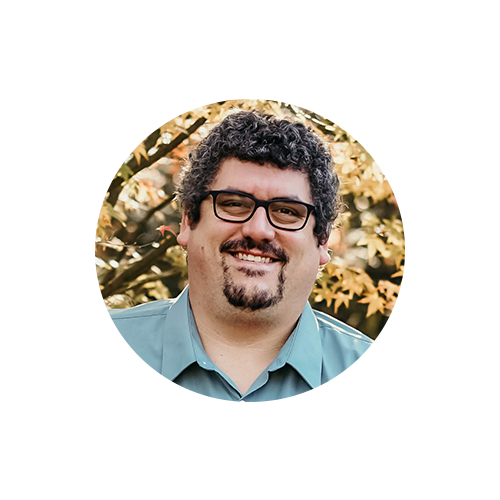
Jeffrey Alan Tomalka, PhD
Assistant Professor
Pathology Advanced Translational Research Unit
Department of Pathology & Laboratory Medicine
View Faculty Profile | Publications
Dr. Tomalka received his BS in Biology from Wake Forest University in 2006. He then spent a year in the laboratory of Dr. Martha Alexander-Miller in the Department of Microbiology and Immunology at the Wake Forest School of Medicine studying the differential role of long vs. short ovalbumin peptide fragments on enhancing the avidity of antigen-specific CD4+ and CD8+ T cells. In 2007, he joined the Biological Scientist Training Program (BSTP) at Case Western Reserve University where he received his Ph.D. in Pathology in 2013. His doctoral thesis detailed the critical role for inflammasomes and TLRs in promoting protective mucosal immune responses to the fungal pathogen Candida albicans. He was the first to publish a role for the NLRP3 and NLRC4 inflammasome complexes in mediating protection from Candida infection and defined the role of these key proteins in driving neutrophil and macrophage recruitment and activation at the site of infection. He showed that the function of NLRP3 was in cells of hematopoietic origin while the function of NLRC4 was in tissue cells, providing some of the first evidence for the function of inflammasome in non-traditional immune cells. Dr. Tomalka then went on to a postdoctoral fellowship in the laboratory of Dr. Parameswaran Ramakrishnan where he studied the molecular mechanisms which govern NF-kB activation downstream of TLRs in macrophages and during Type 1 diabetes in CD4+ T cells. Notably, he was the first to demonstrate that O-GlcNAcylation, a post-translational modification in which N-Acetyl-glucosamine is added to Ser/Thr residues on proteins, of NF-kB c-Rel suppresses FOXP3 expression and Treg cell function to promote autoimmune diabetes. The mechanism of action is by reduced DNA binding of O-GlcNAcylated c-Rel to the FOXP3 promoter with simultaneously enhanced binding to Th1 associated promoters (i.e. IL-2, IFN-g, GMCSF) providing a two-hit hypothesis for enhanced autoimmune diabetes: suppressed Treg function and augmented Th1 function.
He joined the Sekaly Lab in 2013 where he has integrated his expertise in cellular and molecular immunology of innate immune signaling with high dimensional Systems Immunology -OMICs approaches to study the critical roles for the STING pathway and inflammasomes/IL-1 in HIV infection and vaccination. Using human cohorts of HIV infection and vaccination combined with in vitro molecular validation (cytokines, CRISPR, models of HIV infection, etc) he has clearly established that activation of the STING pathway promotes effective vaccine responses by enhancing dendritic cell and CD4+ T cells responses. STING also functions in CD4+ T cells to promote antiviral immunity and induce refractoriness to HIV infection; moreover, he has shown that activation of STING can delay HIV latency in vitro and promote differentiation of latently infected CD4+ stem cells in patients. He has also shown that heightened IL-1 and inflammasome pathway activation prior to HIV infection promotes poor disease prognosis (higher viral loads, lower CD4+ T cell counts), that IL-1b can directly enhance infection of CD4+ T cells and that this pathway can be targeted therapeutically during chronic HIV infection to ameliorate systemic immune activation.
He was recruited to Emory in 2020 as an Instructor in the PATRU to establish his independent lab. His research platform termed “Putting the T(cell) in InnaTe ImmuniTy” has four major areas of focus:
- Innate immune induced STING/CREB1 is a mechanistic driver of protective immune responses during HIV vaccination
- The STING/NLRX1 axis regulates acute HIV infection and latent HIV reservoir establishment/maintenance in primary CD4+ T cells
- Heightened IL-1 and inflammasome priming prior to HIV acquisition enhances infection and viral load in people living with HIV (PWHIV) while driving CD4+ T cell death
- Canakinumab, an IL-1b blocking antibody, reverses systemic inflammation and immune activation in PWHIV
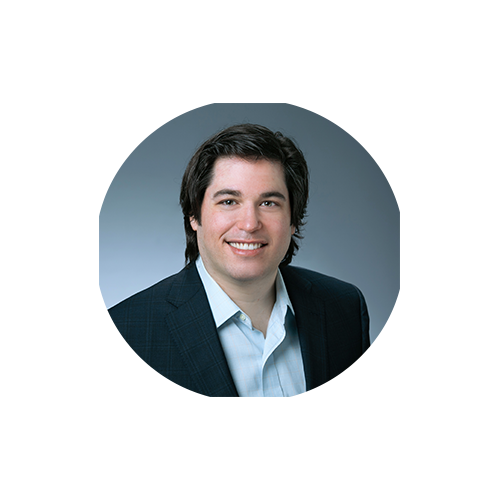
David Ezra Gordon, PhD
Assistant Professor
Pathology Advanced Translational Research Unit
Department of Pathology & Laboratory Medicine
View Faculty Profile
The Gordon laboratory utilizes high-throughput experimental genetics and proteomics to build mechanistic models of biological functions and applies this knowledge to invent new therapeutic treatments. We are interested in all aspects of human biology, with a focus on virology and the human immune system as these offer tractable genetic systems, an ample supply of primary tissues, and opportunities to rapidly test therapeutic interventions.
Dr. Gordon has a diverse research background spanning cell and molecular biology, experimental genetics, proteomics, virology, and systems biology. As a graduate student at the University of Cambridge he applied combinatorial experimental genetics and proteomics to map redundant vesicle trafficking pathways. Later, as a postdoctoral fellow at the University of California San Francisco, he pioneered the use of high-throughput genetic interaction mapping to study HIV host-dependencies. He also spearheaded the first peer-reviewed protein interaction maps of the highly pathogenic coronaviruses SARS-CoV-2, SARS-CoV-1, and MERS. Gordon’s laboratory builds on lessons learned during these pioneering studies to develop high-throughput experiments in primary systems, to systematically dissect the mechanistic basis of immune functions and infection by pathogens of pandemic concern.
We are affiliated with the Emory University Department of Pathology, which is ranked 6th in the United States in NIH research funding, enabling superb research support and access to state-of-the-art equipment. Based next to the CDC, with ample access to BSL facilities at Emory, we are located at a nexus of infectious disease research, and our location in the Emory Vaccine Center with the Pathology Translational Research Unit provides extraordinary collaboration opportunities with world-leading immunologists. We are within walking distance to Emory University Hospital and the Emory National Primate Center, offering numerous collaborative opportunities in both clinical and animal studies.

Mohamed Abdel Hakeem, PhD
Assistant Professor
Pathology Advanced Translational Research Unit
Department of Pathology & Laboratory Medicine
View Faculty Profile | Publications
Biography and Education
Mohamed obtained his B.Pharm. degree from Cairo University, then his M.Sc. and Ph.D. degrees from the University of Montreal. Following his graduate studies, he moved to the University of Pennsylvania, where he was a CRI Irvington, FRQS, and CanHepC Postdoctoral fellow.
Dr. Hakeem joined PATRU in September 2021.
Research Focus and Interests
During his M.Sc. graduate studies in the laboratory of Dr. Naglaa Shoukry, Mohamed investigated the effects of early versus late interferon treatment on the functional recovery of HCV-specific exhausted T lymphocytes (Tex). As a CIHR Banting and CanHepC Doctoral Fellow, he studied the cellular correlates of protective immunity against chronic viruses in HCV patients who cleared several episodes of infection, as well as the dynamics of the repertoire of T-cell receptor (TCR) associated with protective immunity upon reinfection.
In the laboratory of Dr. E. John Wherry at Penn Institute for Immunology, Mohamed investigated the transcriptional and epigenetic aspects of Tex recovery post cure form chronic disease, as well as factors affecting the recall capacity of Tex. Mohamed also collaborated with colleagues at UPenn to explore the subset dynamics of Tex and the roles of different microRNAs in the differentiation of Tex.
At PATRU, Dr. Hakeem continues to investigate T cells in the context of chronic viral infections and tumors. His current research interests at Emory include studying the different factors modulating the epigenetic landscapes of exhausted T cells (Tex), using both mouse models and human samples from patients. Concomitantly, he investigates factors that impact the recall and protective capacities of Tex.

